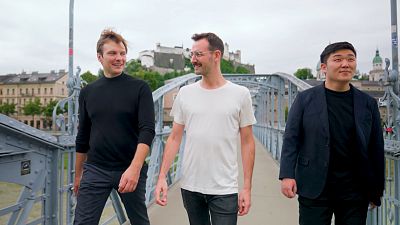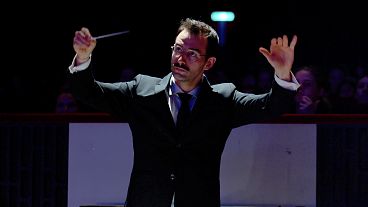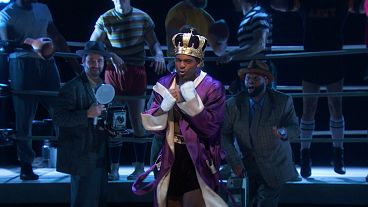Saint Petersburg, or the “Star of the North” is the city of people in love, a metropolis of striking beauty, and the city of the White Nights, when at dusk its buildings are bathed in the sunlight for hours and hours. This is when the city on the Neva never sleeps, in the months of June and July.
It is the most Northern city in the world, positioned as it is on the 60th parallel. During the White Nights it is dusk only for two hours otherwise it is daytime all the time!
After eight long winter months it is as if St. Peterburgers tried to make up for it. The summer solstice turns into one endless party, and culture is firmly on the menu.
During the season of the midnight sun, the Mariinsky Theatre and Concert Hall becomes the venue of a major cultural event: the Festival of the Star of the White Nights – opera, ballet, and concerts, with famous artists from Russia and abroad; they are all guests of Valery Gerghiev’s, the world-renowned conductor as well as artistic and general manager of the theatre. He reputedly runs it with an iron fist.
But for his musicians only a sign or two of his hand is enough.
“You can’t speak during a concert” he says. “You move your hands but that doesn’t mean much. You have to inflame, you have to excite, you have to ‘charge’ certain sections in the orchestra, or the entire orchestra, and you have to express yourself … people know how to read the face of the conductor, his eyes… sometimes it’s a little wild, sometimes it is difficult to describe, but music is also wild sometimes.”
Gergiev is considered a sort of musical archeologist who has been able to rediscover composers forgotten during the Soviet era, and give renewed prestige to the Russian tradition, without neglecting his contemporaries or the German and French repertoires.
His admirers say that he ‘lives’ the music.
“There is the power of imagination. You have your own fantasy, which brings you to a certain level and then you offer something to the orchestra, and the orchestra has to be interested, because there is nothing more dangerous for the classical music world than a boring personality.
It may sound very funny if a conductor says ‘oh, I was nearly crying myself’, but sometimes tears are very close, I just don’t know how to hide them from the orchestra…. it does happen – the power of music can touch even conductors.”
As the music swells and dies inside, meanwhile, outside, in the magical city of Peter the Great, which he designed as Russia’s bridgehead between east and west, the party goes on on the Neva river banks.



